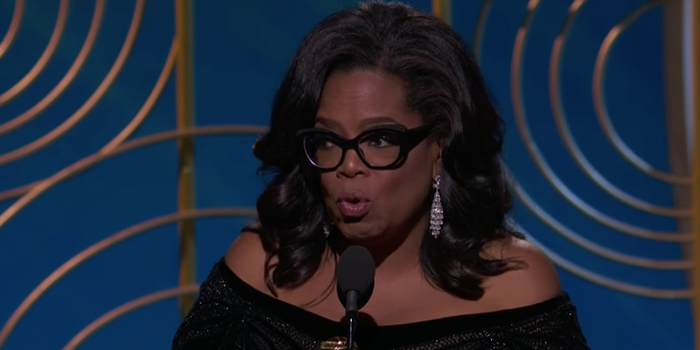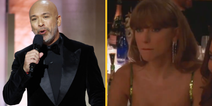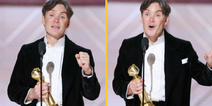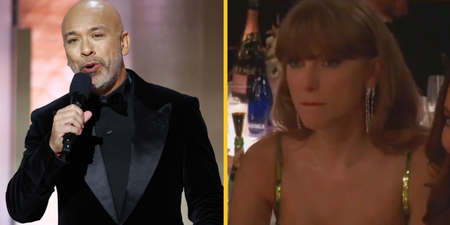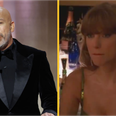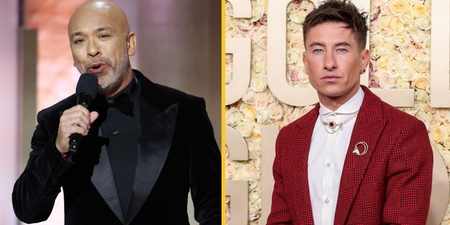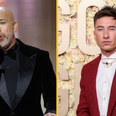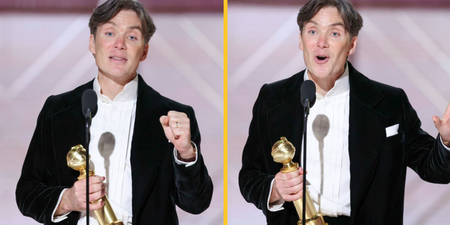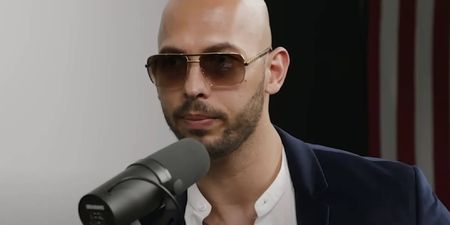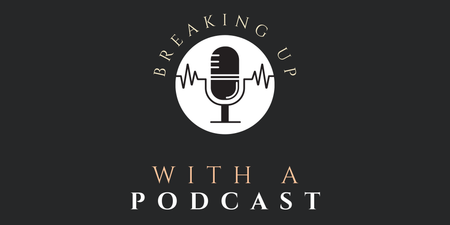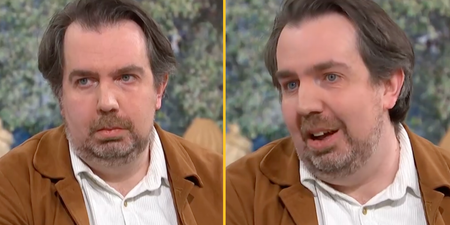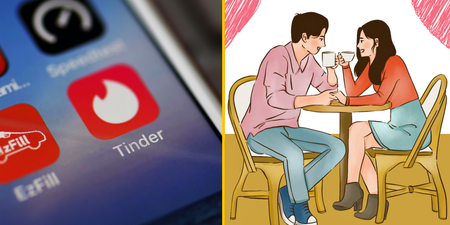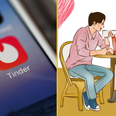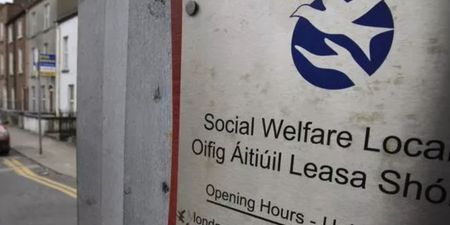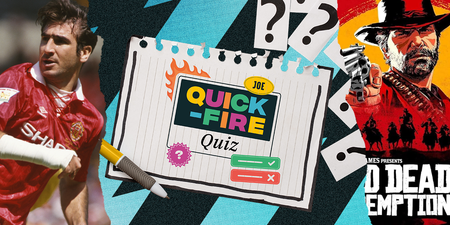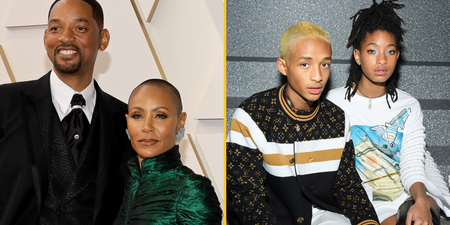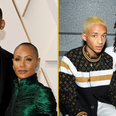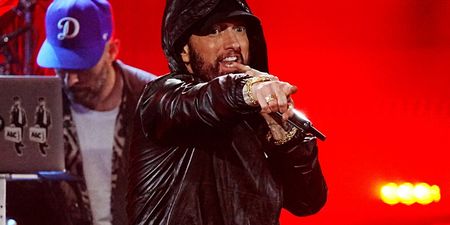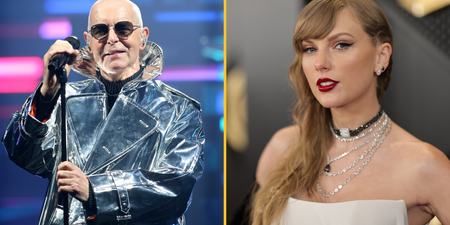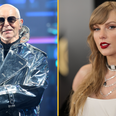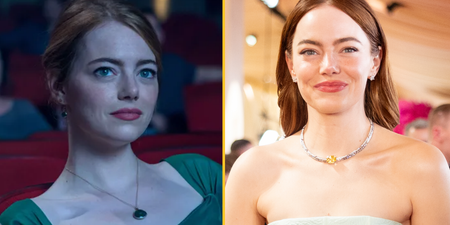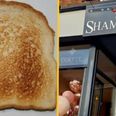Time’s Up, screamed badges from every lapel, Time’s Up, said female actors as they accepted awards, Time’s Up said Oprah at the Golden Globes as she told a story of a black woman who was raped by six white men in 1944 and spoke with a deep tenor of hope, reminiscent of Obama’s 2008 presidential campaign, about a horizon free from sexual assault.
Although Oprah’s rousing call is as unlikely to end sexual violence as Barack Obama’s skin colour was capable of transforming race relations in America, few will begrudge these celebrities the victory of a message transmitted across the internet.
At the 2018 Golden Globes, women used their creative prowess and resources to vehemently express their anger and frustration about sexual violence, harassment and a culture that prefers men to women.
What did they do? They wore black.
Intended to be a redistribution of power and a sleek inversion of the traditional focus on female fashion as a precursor to sexual violence, the question uncomfortably lingers; did it achieve anything?
Members of the film industry who achieve moderate levels of success and who attend awards ceremony are part of an elite group who, by privilege or graft, are often seen by society to at the pinnacle of success.
With our permission, these people become our moral and social authorities, they occupy a position of power and prestige which grants them licence to lead, whether it is with seemingly innocuous trends, political endorsements or instigating the first churnings of a tsunami of sexual assault allegations.
If these celebrities choose to do something en masse, if they make a statement of any kind it becomes a story in the news and a point of discussion. The position they occupy is authoritative. More than politicians, more than scientists, more than academics, celebrities shape our day-to-day perspectives and social interactions.
What begins in Hollywood, whether it is caterpillar eye brows, lip fillers or public allegations of sexual assault, filters down to society in a myriad of ways. Some positive and some botched.
These celebrities are endorsed by popular culture, we consent to their perspectives being propagated and their normal being the standard but celebrities exist on a brittle pedestal one inch off the ground. They survive by commodifying themselves, by selling their image and trading their own selves for other people’s consumption.
In return, we the consuming public, accept what they do largely without challenge. So why, when the world was watching, didn’t they do more?
There is nothing revolutionary about a black dress or suit, as far as statement colours go, black is quite a conservative choice.
Women on the red-carpet spoke to mainstream media outlets about subjugation and an industry that promotes men and isolates women. This is not new news.
For the women and men who risked societal rejection and shame and put themselves into the public spotlight by calling out their attackers, the Golden Globes was not an honouring, it was just about a nod of recognition.
What happened to the victims of sexual violence who were harassed, assaulted, bullied and raped was not normal, it wasn’t inevitable but it was apparently quite common.
The Golden Globes, the first large-scale public gathering of Hollywoods’s upper echelons since the first Weinstein reaction didn’t go far or wide enough to recognise this abnormality, it didn’t shake an industry that nominates only men for the Best Director Award, it didn’t boycott the awards, didn’t protest much at all.
It was as basic as statement as the E! channel red-carpet commentator saying; “Our coverage is really woke!”
Not one man who won an award mentioned the MeToo movement or the ubiquitous culture of gender inequality in Hollywood. This is still a one gender effort and it seems the exertion is not on the part of those that need to adapt their behaviour.
The women of Hollywood are doing little more than monochromatically shading inside the lines that the patriarchy drew for them. It would have looked perplexingly insular if they did nothing, so they did a little something sartorial and left it at that.
Looking to this selection of women for a role model will leave us normal people thirsty. Quoting a mawkish Oprah we’ll realise the substance that is missing from the chatter, and that the headline feminism we’re regurgitating from our celebrity leaders lacks rebellious vision, or any vision at all.
How will the work of these celebrities filter down to the common culture they say they are helping to create and shape?
Why should the work of actors, who profit out of deceit and pretence matter to the women and men in Ireland who won’t go the Gardaí for fear they won’t be believed? How will a black dress inspire those who can’t afford to leave abusive relationships because there is nowhere for them to go? How can those who work daily in environments where they feel under threat of sexual harassment from authority figures feel emboldened by women who have every resource and still can’t come up trumps?
If we look to celebrity for the answers, for inspiration, we donate the potential power for change that exists in Ireland and in our own industries to the turning reel of Hollywood that will most likely move on.
It is not enough to rely on authority figures in Hollywood. We can’t look for inspiration from those who, while working in the most creative of industries, can’t come up with something better than wearing black to an awards show.
LISTEN: You Must Be Jokin’ with Aideen McQueen – Faith healers, Coolock craic and Gigging as Gaeilge
